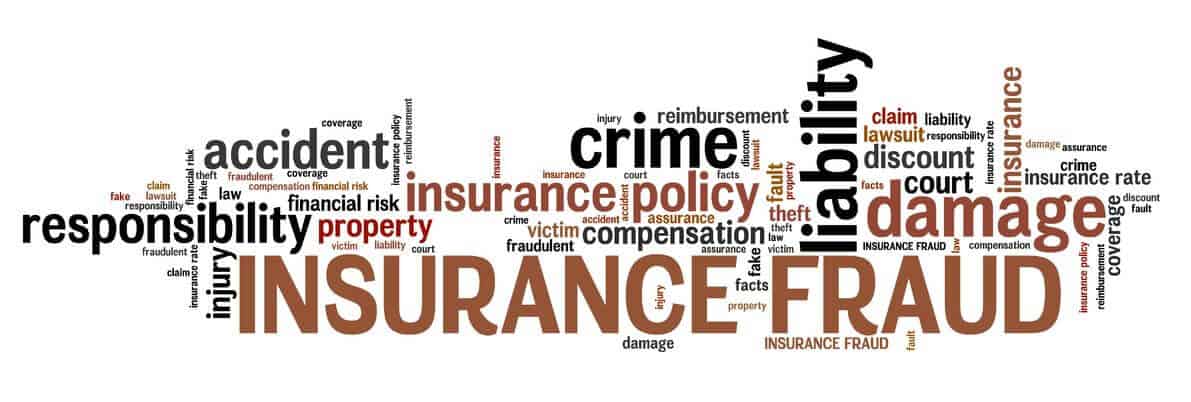According to the Federal Bureau of Investigation (FBI), the US loses over 40 billion US dollars annually to scammers involved in insurance frauds. At first, this figure may sound ridiculously high but it seems more realistic when one takes into account the size of this industry. The US has over seven thousand insurance companies that collectively accumulate around one trillion US dollars in premium, every year. So, the enormous size of this industry is the very reason for the huge losses that it incurs, mostly in the form of insurance frauds.
What is Insurance Fraud?
An insurance policy is a tripartite agreement that’s drawn in order to indemnify the beneficiary, in case of a contingency. So, any abuse of the insurance process by either of the three parties is referred to as insurance fraud. Therefore, it may occur due to failure on the part of the insurance agent to fulfill his obligations towards the insurance company. Also, any failure by the policy-holder to comply with the terms of the insurance agreement and to make a full disclosure may result in insurance fraud.
Although there are different types of insurance frauds, the motive behind each of them remains the same — financial gain. However, depending on who commits the fraud and the nature of the insurance policy, these are classified into various categories. Now that we have discussed what constitutes insurance fraud, its time to further elaborate on the various types of insurance frauds and how these are committed.
Premium Diversion
Premium diversion is the embezzlement of funds paid by the policy-holder as premium and is the most common type of insurance fraud. Typically, the insurance agent collects the insurance premium from the insured but keeps the premium to himself. So, despite being under the obligation to collect the premium and transfer it to his ‘Principal’, the insurance company, the agent fails to do so. This failure to duly release the premium amount collected from the policy-holder in favor of the insurance company results in fraud and breaches the agreement that exists between the agent and the insurance company. However, this does not involve any wrongdoing on part of the policy-holder.
Workers’ Compensation-related Insurance Frauds
The Workers’ Compensation frauds are committed either by the employer or the employee of an organization. Employees commit this type of fraud by making higher claims or fake claims in order to wrongfully profit from the insurance process. However, the employer commits this fraud by furnishing wrong information to the concerned authorities, only to reduce his expenditure towards insurance.
For example, an employer may wrongly classify his employees as independent contractors, in order to avoid paying for their insurance. This act is commonly referred to as ‘underreporting of payroll’ and can result in dire consequences such as a stop-order, fine or even indictment. So, when the employer fails to comply with the State and Federal requirements to buy workers’ compensation insurance policies for its employees, it results in insurance fraud. Here, the company’s sole object is to reduce its overheads by either entirely avoiding the insurance policies or through the payment of insufficient premiums.
Disaster Insurance Frauds
Disaster-related insurance frauds are one of the most common types and involve scammers making false claims and filing fraudulent applications, which also involves identity theft. Over the years, Experts estimate that close to ten percent of all disaster insurance payouts are lost to fraudsters. Back in 2005, when Hurricane Katrina devastated the Gulf Coast, close to 6 billion US dollars were lost due to insurance frauds. Later, 2016 disaster in the Gulf Coast region recorded disaster-related insurance frauds of over 1.3 billion US dollars.
Car Insurance Frauds
Car insurance frauds involve false claims made by the car owner who either falsely reports it stolen or preplans an “accident” to scam the company. Often these scammers manage to ship their cars outside the US, which is followed by a false claim. While that’s one way of doing it, there’s another more dramatic way in which car owners defraud insurance companies — through fake accidents. These fake accidents do not involve damage to any third party but to the driver and the car. To make this entire plot seem real, the scammer also makes use of fake witnesses that witnessed the “accident”.
Health Insurance Billing Fraud
This is a darker side of medical practice, which involves falsely billing the insurance companies for medical procedures that were never carried out. At times, some medical procedures are carried out but the prices are inflated to earn extra profits. This causes a serious loss to the insurance holder as well as the insurance company — the only difference is that the insurance company may know about it while the insurance holder does not.
Staged losses due to fire
In most cases, fires caused in empty houses are staged solely to make an insurance claim. These often occur while the occupants are away from home and barely involve any serious injuries or losses. Often this trick is used by the insurance policy-holder when the sum insured is more than the market price of the house. Also, it is commonly used in cases of difficulties in selling the property.
Impact of Insurance Frauds
Insurance companies pool up the resources of the policy-holders through premiums and reimburse those who are affected due to specified contingencies such as injuries, accidents, fire or natural disaster. So, for every false claim made, the money is going out of this pool which increases the insurance premium costs of all the policy-holders.
As a result, when some policy-holders defraud the insurance company into paying excess amounts, then the premium per head is adversely affected and all the other policy-holders end up paying excess amounts in premium. According to the FBI, these insurance frauds cost between $400 and $700 US dollars per family, in the form of additional amounts paid as premiums. Therefore, there is a sheer need to curb this menace in order to protect the best interests of the nation.



